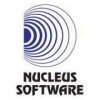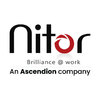Senior Sse Software Engineering Analyst
30+ Senior Sse Software Engineering Analyst Interview Questions and Answers

Asked in HCL Foundation

Q. Multithreading and reverse of a string and spring mvc and oops concepts and basics of core java and hibernate security restrictions and struts of modules of prototype and security acomplishments of various tool...
read moreThe question covers various topics including multithreading, string reversal, Spring MVC, OOP concepts, core Java, Hibernate, security restrictions, Struts, prototype modules, security accomplishments of tools, integration services, server integrations, data manipulation, and data security in software-related IT.
Multithreading: Concurrent execution of multiple threads
Reverse of a string: Reversing the order of characters in a string
Spring MVC: Framework for building web appli...read more

Asked in TEKsystems

Q. Answer clearly and concisely, without adding unnecessary details.
A Senior SSE Software Engineering Analyst focuses on software development, analysis, and team leadership in engineering projects.
Responsible for designing and implementing software solutions.
Analyzes system requirements and translates them into technical specifications.
Leads a team of developers, ensuring best practices in coding and design.
Example: Overseeing the development of a new feature in a web application.
Collaborates with cross-functional teams to align on project go...read more

Asked in HCL Foundation

Q. Search engine optimization of data using artifical intelligence ai technology and deep face
Search engine optimization using AI technology and deep face
AI technology can be used to analyze search patterns and optimize search engine results
Deep face technology can be used to analyze user preferences and personalize search results
AI can also be used to improve the relevance and accuracy of search results
Examples: Google's RankBrain algorithm, Amazon's recommendation system
Asked in Becker Alliance

Q. What is the difference between ViewBag and ViewData?
ViewBag and ViewData are both used to pass data from controller to view in ASP.NET MVC, but ViewBag is dynamic and ViewData is strongly typed.
ViewBag is a dynamic property that allows you to pass data from controller to view without strong typing
ViewData is a dictionary object that requires typecasting to access data passed from controller to view
ViewBag is a property of the ControllerBase class, while ViewData is a property of the ViewDataDictionary class
Example: ViewBag.Tit...read more

Asked in Coforge

Q. What is a functional interface and why is it used?
A functional interface is an interface that has only one abstract method and can be used as a lambda expression.
Functional interfaces are used in Java 8's lambda expressions and method references.
They provide a way to pass behavior as an argument to a method.
Examples of functional interfaces include Runnable, Consumer, and Predicate.
Functional interfaces can also have default methods and static methods.

Asked in Nucleus Software Exports

Q. What is oops Properties of oops
OOPs is a programming paradigm that uses objects to represent real-world entities and their interactions.
OOPs stands for Object-Oriented Programming.
It focuses on encapsulation, inheritance, and polymorphism.
Encapsulation means hiding the internal details of an object from the outside world.
Inheritance allows creating new classes based on existing ones.
Polymorphism allows objects of different classes to be treated as if they were of the same class.
Examples of OOPs languages a...read more
Asked in EGDK

Q. Given a string, find the length of the longest substring without repeating characters.
Find the longest substring without repeating characters in a given string.
Use a sliding window approach to track the current substring.
Maintain a set to check for duplicate characters.
Update the start and end indices of the window as you iterate through the string.
Keep track of the longest substring encountered so far.

Asked in LTIMindtree

Q. What steps do you take when the CI/CD pipeline is down?
If CI/CD pipeline is down, troubleshoot the issue, identify root cause, fix the problem, and resume pipeline.
Troubleshoot the issue to identify the root cause of the pipeline failure
Fix the problem causing the pipeline to be down
Resume the CI/CD pipeline to ensure continuous integration and deployment
Implement monitoring and alerting systems to detect and prevent future pipeline failures
Share interview questions and help millions of jobseekers 🌟


Asked in TCS

Q. What is the difference between an Interface and an abstract class?
Interface is a contract that defines the methods a class must implement, while abstract class can have both implemented and abstract methods.
Interface can only have abstract methods and constants, while abstract class can have abstract and non-abstract methods.
A class can implement multiple interfaces but can only inherit from one abstract class.
Interfaces are used to achieve multiple inheritance in Java, while abstract classes are used to provide a common base for subclasses...read more

Asked in LTIMindtree

Q. SQL query and difference between DDL and DML
SQL query is used to retrieve data from a database, DDL is for defining structure, DML is for manipulating data.
SQL query is used to retrieve data from a database, such as SELECT * FROM table_name.
DDL (Data Definition Language) is used to define the structure of database objects, like CREATE TABLE or ALTER TABLE.
DML (Data Manipulation Language) is used to manipulate data in the database, like INSERT, UPDATE, DELETE.

Asked in Accenture

Q. How do you integrate development to production?
Integrating dev to prod involves careful planning, testing, and deployment to ensure a smooth transition of code changes.
Create a deployment pipeline to automate the process of moving code changes from development to production.
Use version control systems like Git to track changes and ensure consistency between environments.
Perform thorough testing in a staging environment before deploying to production to catch any bugs or issues.
Implement continuous integration and continuo...read more

Asked in Cafe Coffee Day

Q. How do you handle critical scenarios?
Handling critical scenarios involves quick thinking, clear communication, and prioritizing tasks.
Stay calm and assess the situation
Communicate with team members and stakeholders
Prioritize tasks based on impact and urgency
Implement a solution while keeping stakeholders informed
Review and learn from the incident to prevent future occurrences
Asked in Netsmart Technologies

Q. How do you find errors in an SQL index?
Identifying errors in SQL indexes involves analyzing performance, checking statistics, and validating index integrity.
Check Query Performance: Use EXPLAIN to analyze how queries utilize indexes and identify slow queries that may benefit from indexing.
Review Index Statistics: Ensure that index statistics are up-to-date, as outdated statistics can lead to inefficient query plans.
Validate Index Integrity: Use database-specific commands (e.g., DBCC CHECKDB in SQL Server) to check...read more

Asked in Nitor Infotech, an Ascendion company

Q. How do you load data incrementally?
Loading data incrementally involves updating only new or changed data instead of reloading entire dataset.
Identify the key field that determines new or updated records
Use timestamp or versioning to track changes
Implement a process to extract, transform, and load only new or updated data
Consider using tools like Change Data Capture (CDC) or Incremental Load in ETL processes

Asked in Accenture

Q. What are local and global variables?
Local variables are declared within a specific function or block of code, while global variables are declared outside of any function and can be accessed throughout the program.
Local variables are only accessible within the function or block where they are declared.
Global variables can be accessed from any part of the program.
Local variables have a limited scope, while global variables have a wider scope.
Example: int x = 5; // global variable, can be accessed from any functio...read more

Asked in ThinkPalm Technologies

Q. Tell me about the page life cycle.
Page life cycle is the sequence of events that occur during the lifespan of a web page.
Page life cycle consists of several stages such as initialization, loading, rendering, and disposal.
During initialization, the page and its controls are created and their properties are set.
Loading involves retrieving and populating the controls with data.
Rendering is the process of generating the HTML output to be sent to the client's browser.
Disposal occurs when the page is no longer need...read more

Asked in CTS Consulting & Technical Support

Q. What are collections in Oracle?
Collections in Oracle are data structures that store and manipulate groups of data.
Collections can be used to store data in arrays, lists, or sets.
They can be used to pass data between PL/SQL blocks or between PL/SQL and SQL.
Examples of collections include VARRAYs, nested tables, and associative arrays.

Asked in CTS Consulting & Technical Support

Q. What are partitions in Oracle?
Partitions in Oracle are a way to divide a large table into smaller, more manageable pieces.
Partitions allow for faster querying and maintenance of large tables
They can be based on a range of values, a list of values, or a hash function
Partitioning can be done on tables, indexes, and materialized views
Examples of partitioning include partitioning by date, region, or customer ID

Asked in Giant Eagle

Q. Explain the use of async and await in C#.
Asynchrony and await in C# allow for asynchronous programming, improving performance and responsiveness.
Asynchrony in C# allows tasks to run concurrently, improving performance.
The 'await' keyword is used to asynchronously wait for a task to complete before continuing.
Asynchronous programming in C# is commonly used for tasks such as network requests or file I/O operations.

Asked in TCS

Q. What is abstraction?
Abstraction is the process of simplifying complex systems by focusing on essential details and hiding unnecessary complexities.
Abstraction involves creating models or representations that capture the important aspects of a system while ignoring irrelevant details.
It allows developers to work at a higher level of abstraction, making it easier to understand and manage complex systems.
Abstraction helps in reducing complexity, improving code reusability, and enhancing maintainabi...read more

Asked in Manhattan Associates

Q. What is dependency injection in Angular?
Dependency injection in Angular allows for providing dependencies to a class instead of creating them within the class.
In Angular, dependency injection is used to provide dependencies to a class instead of creating them within the class.
Dependencies are typically provided in the constructor of a class using TypeScript.
Angular's dependency injection system is hierarchical, allowing for different levels of scope for dependencies.
Providers are used to define how dependencies are...read more
Asked in RMES India

Q. What are CSS media queries?
CSS media queries are a feature that allows the application of styles based on device characteristics.
Media queries enable responsive design by applying different styles for different screen sizes.
Example: @media (max-width: 600px) { body { background-color: lightblue; } }
They can target various features like width, height, orientation, and resolution.
Example: @media (orientation: landscape) { /* styles for landscape mode */ }
Media queries help improve user experience across ...read more
Asked in RMES India

Q. What are the ES6 features?
ES6 introduces significant improvements to JavaScript, enhancing syntax and functionality for developers.
Arrow Functions: Shorter syntax for function expressions. Example: const add = (a, b) => a + b;
Template Literals: Multi-line strings and string interpolation. Example: const greeting = `Hello, ${name}!`;
Destructuring Assignment: Unpacking values from arrays or properties from objects. Example: const [x, y] = [1, 2];
Default Parameters: Allow default values for function para...read more
Asked in Abc Technologies

Q. Dsa algo all type of qstn
The question is asking about various types of data structures and algorithms questions.
Types of data structures: arrays, linked lists, stacks, queues, trees, graphs, hash tables
Types of algorithms: sorting, searching, dynamic programming, greedy algorithms, backtracking
Examples: Implementing a binary search tree, finding the shortest path in a graph using Dijkstra's algorithm

Asked in Nitor Infotech, an Ascendion company

Q. What are the different types of Slowly Changing Dimensions (SCD)?
SCD types refer to slowly changing dimensions in data warehousing, categorized into Type 1, Type 2, and Type 3.
Type 1: Overwrite existing data with new data, losing historical information.
Type 2: Create a new record for each change, preserving historical data with a new surrogate key.
Type 3: Maintain both old and new values in separate columns within the same record.

Asked in Oracle

Q. What are Spring Boot annotations?
Spring Boot annotations simplify Java application development by providing built-in configurations and functionalities.
@SpringBootApplication: Combines @Configuration, @EnableAutoConfiguration, and @ComponentScan.
@RestController: Indicates that the class is a controller where every method returns a domain object instead of a view.
@RequestMapping: Maps HTTP requests to handler methods of MVC and REST controllers.
@Autowired: Enables automatic dependency injection for Spring bea...read more

Asked in Capgemini

Q. Explain the intercompany sales process.
Intercompany sales process involves transactions between two entities within the same company.
Intercompany sales are transactions between different divisions or subsidiaries of the same company.
These transactions are recorded as sales in the selling entity and purchases in the buying entity.
The goal is to accurately reflect the revenue and expenses within the company.
Intercompany sales must be eliminated during consolidation to avoid double counting.
Examples include a parent ...read more

Asked in Experiture

Q. Middleware in. NetCore
Middleware in .NetCore is used to handle HTTP requests and responses in the application pipeline.
Middleware components are added to the application pipeline to process requests and responses.
They can perform tasks like logging, authentication, authorization, error handling, etc.
Middleware can be added using the app.UseMiddleware method in the Startup class.
Example: app.UseMiddleware<CustomMiddleware>();

Asked in TCS

Q. What are the concepts of OOPS?
OOPs (Object-Oriented Programming) is a programming paradigm based on the concept of objects, which can contain data in the form of fields and code in the form of procedures.
OOPs focuses on creating objects that interact with each other to solve a problem.
Key concepts include encapsulation, inheritance, polymorphism, and abstraction.
Encapsulation involves bundling data and methods that operate on the data into a single unit.
Inheritance allows a class to inherit properties and...read more

Asked in Accenture

Q. How do you swap numbers?
Swapping numbers involves exchanging the values of two variables.
Create a temporary variable to store one of the numbers
Assign the value of the first number to the second number
Assign the value of the temporary variable to the first number
Interview Experiences of Popular Companies






Calculate your in-hand salary
Confused about how your in-hand salary is calculated? Enter your annual salary (CTC) and get your in-hand salary


Reviews
Interviews
Salaries
Users










